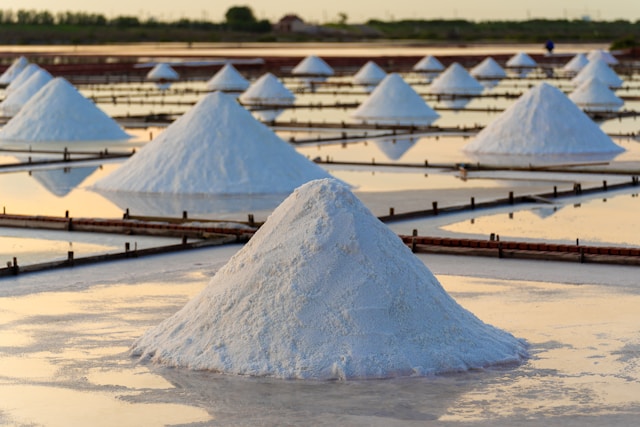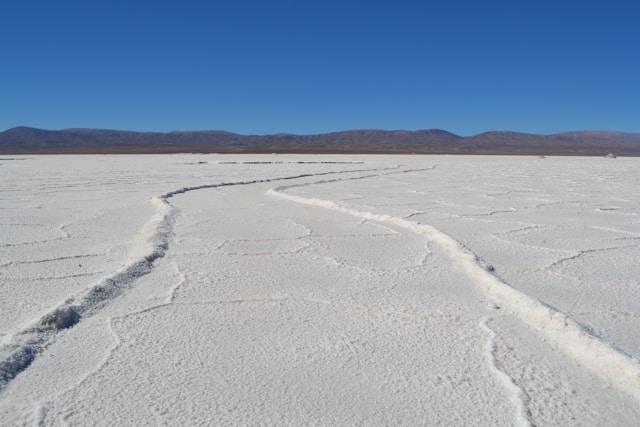Physical Address
304 North Cardinal St.
Dorchester Center, MA 02124
Physical Address
304 North Cardinal St.
Dorchester Center, MA 02124

Are you looking for an easy, natural way to give your garden plants a boost? If you’re not using magical white powder in your garden, you’re missing out on an incredible resource for healthier, stronger plants. What is this miracle ingredient? Epsom salt, also known as magnesium sulfate, is the secret to a flourishing garden.
Packed with essential minerals and a host of benefits, Epsom salt is a gardener’s best-kept secret. Let’s explore why this magical white powder is a must-have for your garden and how to use it properly.
Epsom salt provides magnesium and sulfur—two vital nutrients that plants need to thrive. Magnesium plays a key role in the production of chlorophyll, which is necessary for photosynthesis. Sulfur, on the other hand, supports the formation of vitamins, enzymes, and amino acids. Adding Epsom salt to your soil replenishes these nutrients and promotes robust plant growth.
Magnesium found in Epsom salt enhances the absorption of other crucial nutrients like nitrogen, phosphorus, and potassium. This increased nutrient uptake allows your plants to process sunlight more effectively and turn it into energy, resulting in healthier, more vibrant growth.
Struggling with dull, lackluster foliage? Epsom salt can improve chlorophyll production, leading to greener, healthier plants. This is particularly beneficial for leafy vegetables such as spinach, lettuce, and kale, ensuring their leaves grow strong and vibrant.
Soaking seeds in an Epsom salt solution before planting can improve germination rates. Magnesium creates an optimal environment for young plants, helping them establish roots more effectively and get a head start on healthy growth.
Epsom salt isn’t just good for plants; it’s also a natural deterrent for certain garden pests like slugs. Sprinkle it around the base of your plants or affected areas to create a barrier and protect your garden without resorting to harsh chemicals.

To make the most of this magical white powder in your garden, it’s important to use it correctly. Follow these simple tips to ensure your plants reap the benefits:
In the Soil: Before planting, mix Epsom salt into the soil. Use 1 tablespoon for every 10 square feet of garden space or 2 tablespoons for container plants. This ensures your plants get a steady supply of magnesium and sulfur from the start.
As a Foliar Spray: Combine 1 tablespoon of Epsom salt with 1 gallon of water and spray it on your plants’ leaves every two weeks. This method delivers nutrients directly to the foliage, giving your plants a quick boost.
Compost Enhancer: Add Epsom salt to your compost pile to increase its nutrient content. Use 1 tablespoon of Epsom salt per 5-gallon bucket of compost for a nutrient-rich addition to your soil.
While Epsom salt offers many benefits, it’s crucial not to overdo it. Excessive magnesium can disrupt the balance of other nutrients in the soil. Always test your soil before applying Epsom salt to determine its current nutrient levels.
Additionally, research the specific needs of your plants, as nutrient requirements can vary widely. Proper application ensures your plants get the maximum benefit without any drawbacks.
Don’t underestimate the power of this magical white powder in your garden. From improving soil health to promoting lush greenery and deterring pests, Epsom salt is a simple yet effective tool for gardeners. At Sow Haven, we believe in using natural solutions to nurture plants and create thriving gardens.
Try incorporating Epsom salt into your gardening routine today, and watch your cucumbers, tomatoes, and leafy greens flourish like never before!